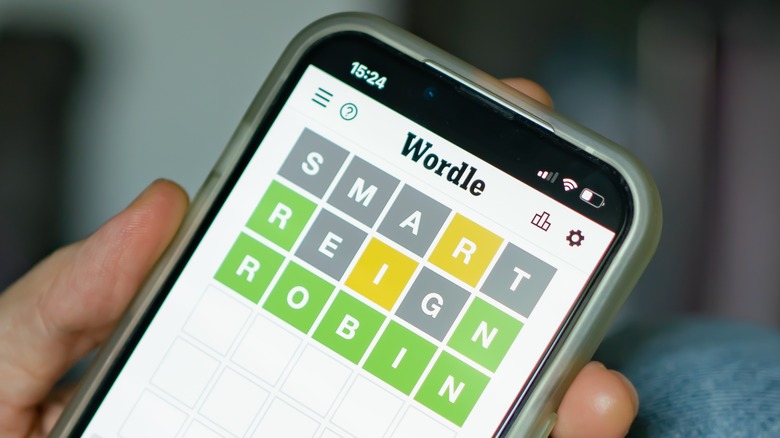Today's Wordle Answer #647 - March 28, 2023 Solution And Hints
Today's Wordle answer is a verb that depicts agitation or urgency, which are both emotions you're probably feeling if you're struggling to solve the puzzle while you're running out of attempts. But as always, we're here to save the day and your streak. We'll share a few hints that should make the answer clear to you, and to preserve the thrill of the game, we keep them as subtle and engaging as possible. However, if you're not in the mood for brain-teasing, or you no longer have the luxury of trial and error, you can skip ahead to the second section where we reveal the solution word without teasers.
The word you're looking for is a popular one. It's a noun but it can also function as a verb, and it describes a haste or hustle induced by a need to speed things up. The word has only one vowel, U, and its third letter is also repeated as the fourth. It almost rhymes with "early," although if you're ever early, you wouldn't have to use today's answer word.
Still uncertain? Let's look at some more clues that could help turn on the light bulb before we disclose the answer. You could replace the first letter of the word with C to create the name of a spicy Indian dish or an NBA player. If you replace it with an F instead, you'd have an adjective that people typically use to describe pets.
A skite, a scamper, a scurry
Speaking of pets, it's time to let the cat out of the bag. The answer to today's Wordle puzzle (#647 — March 28, 2023) is hurry. You're probably familiar with the word and its meaning — "to make haste" — but what might be news to you is that the word is credited to Shakespeare.
Etymonline reports that the word was first recorded in Shakespearean writing, and is possibly a variation of the word "harry" or the West Midlands twist of Middle English "hurren," which meant to buzz or vibrate rapidly, typically in the context of insects. Per the same source, it traces further back to Proto-Germanic "hurza," meaning "to move with haste," which is possibly the same root of the word "hurl."
There are no sources specifying that Shakespeare invented the word, though. It might have been in common usage during the Elizabethan era, just not used in written text prior to the writings of the prominent playwright. We hope you turn your tiles green in as few tries as possible. To improve your chances of a quick win moving forward, here's a guide to the best starting words for narrowing down possible answers to Wordle puzzles. And if you're in the mood for more brain teasers, here are other games like Wordle you can try.

